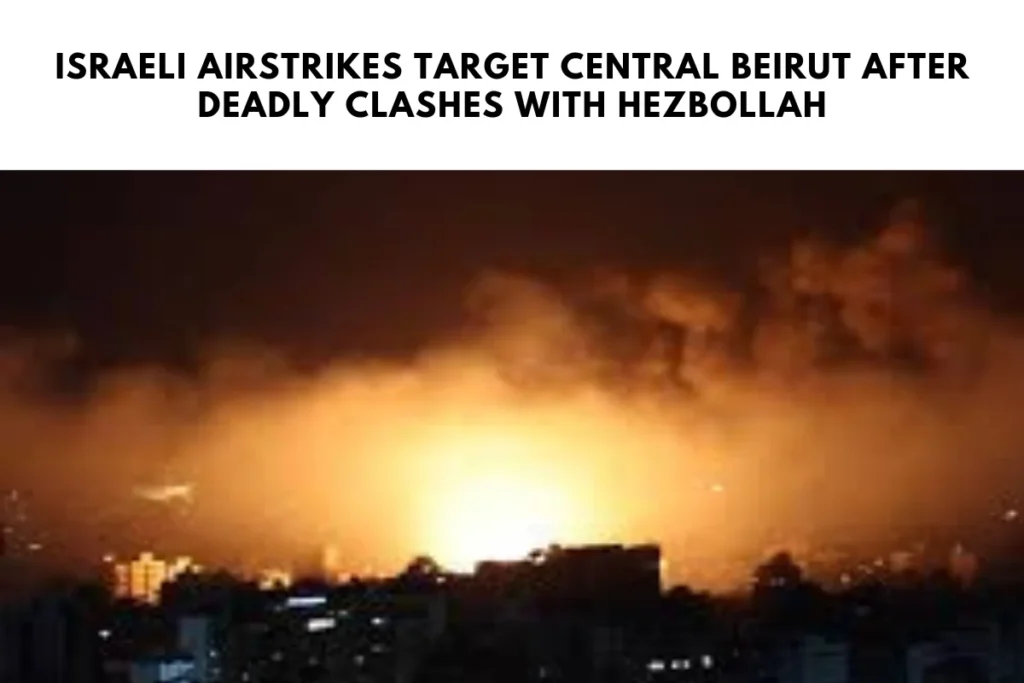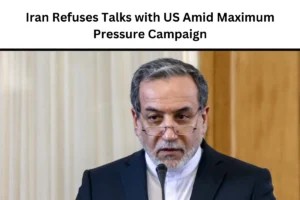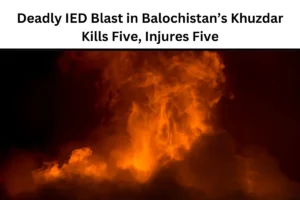
Israel bombed central Beirut early Thursday, killing at least six people. This comes after Israeli forces faced their deadliest day of clashes with Hezbollah in a year. According to Israeli officials, they conducted a precise airstrike in Beirut’s Bachoura district, near the parliament building. Lebanese health officials confirmed six deaths and seven injuries from the strike.
The attack is the closest Israeli strike to the center of Beirut in recent times. Witnesses reported hearing a massive explosion, and a photo circulating on social media shows a damaged building with its first floor on fire. Reuters has not yet verified the image.
In addition to the strike on central Beirut, three missiles also hit Dahiyeh, a southern suburb of the city. Loud blasts were heard in the area, where Hezbollah leader Hassan Nasrallah was killed last week. On Wednesday alone, Israeli forces launched over a dozen airstrikes on southern Beirut.
The Israel Defense Forces (IDF) warned residents of Lebanese villages to stay away from their homes as airstrikes continued. “IDF raids are ongoing,” said Avichay Adraee, an IDF spokesperson, in a post on X.
Meanwhile, the Iran-backed Houthi militant group from Yemen claimed responsibility for drone strikes on Tel Aviv, Israel’s financial hub. Yahya Saree, the group’s spokesperson, stated the drones reached their targets without being intercepted.
Wednesday marked a significant escalation when Iran fired more than 180 missiles into Israel. During ground combat in southern Lebanon, eight Israeli soldiers were killed. The Israeli military deployed infantry and armored units, signaling a possible expansion of operations.
Hezbollah confirmed their fighters engaged Israeli forces along the Lebanese border, destroying three Israeli Merkava tanks. These were the first ground clashes reported since Israeli troops crossed into Lebanon earlier this week.
Israeli Prime Minister Benjamin Netanyahu released a statement mourning the fallen soldiers, saying, “We are in the midst of a difficult war with Iran’s Axis of Evil, which seeks to destroy us. This will not happen, and with God’s help, we will prevail.”
International Reactions and Diplomacy Lebanon’s health ministry reported that Israeli airstrikes have killed 46 people in the past 24 hours in the country’s central and southern regions. While Iran stated its missile barrage had ended unless provoked further, Israel and the U.S. pledged to retaliate strongly.
U.S. President Joe Biden called for restraint, urging Israel to act proportionally against Iran. The G7 nations and China have also called for diplomacy, stressing that a region-wide conflict is in no one’s interest. Western nations have prepared contingency evacuation plans for their citizens in Lebanon, though large-scale evacuations have not yet begun.
Growing Humanitarian Crisis The nearly year-long conflict has displaced 1.2 million Lebanese residents, according to Lebanon’s caretaker Prime Minister Najib Mikati. More than 1,900 people have been killed, with most of the casualties occurring in the last two weeks. Hezbollah’s media chief declared that this was just the “first round” of battles and vowed to push back against Israeli advances.
As tensions grow, Israel continues to focus on dismantling Hezbollah’s tunnels and infrastructure near the border. Although there are no current plans to target major cities like Beirut or southern towns, the ongoing conflict has forced many to flee their homes.
In Beirut, families like Malika Joumaa’s, displaced from southern Lebanon, have sought refuge in places like Saint Joseph’s Church. “We would have been on the streets if it wasn’t for the church,” she said, recounting her difficult journey.
As Israel and Hezbollah continue their deadly clashes, international pressure mounts for a diplomatic resolution to the Middle East’s growing crisis.
(This story is published from a syndicated feed and has not been edited by ANN Media, except for the headline.)
for more updates follow ANN MEDIA on facebook , X , Instagram and Linkedin







